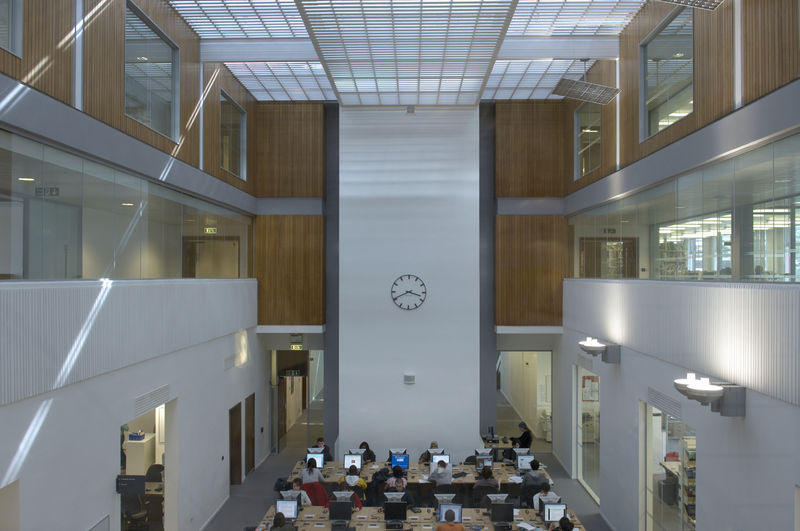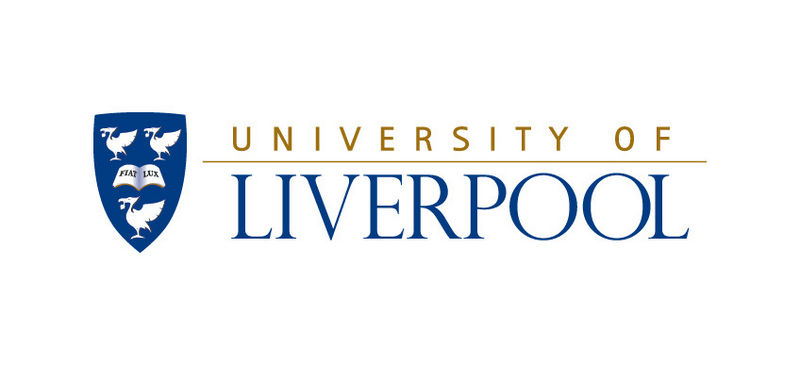University of Liverpool
The University of Liverpool is one of the UK’s leading research institutions with an annual turnover of £340 million, including £123 million for research. Associated with no fewer than nine Nobel Laureates, Liverpool is a member of the prestigious Russell Group, comprising the leading research universities in the UK.
In the Government’s most recent research assessment exercise, in 38 out of 43 units the University’s academics attained quality recognised as internationally excellent in terms of significance and rigour.
With 22,000 students and 155,000 alumni in 159 countries, the University supports more than 5,000 jobs and generates more than £365 million for Liverpool's economy. The institution works closely with key public agencies to drive the processes of knowledge transfer and business development into the heart of the UK economy and has 560 industry partners.
A truly international institution, Liverpool has established a new university in the World Heritage city of Suzhou near Shanghai, in partnership with Xi’an Jiaotong University – a top 10 university in China. Xi’an Jiaotong-Liverpool University (XJTLU) is based in Suzhou Industrial Park – one of Asia’s most successful business parks and a hub for foreign investors, attracting 2,100 international organisations, including 76 Fortune 500 companies.
Sustainability
The University recognises its responsibility to develop and maintain a sustainable environment and adhere to sustainable practices in all of its activities, not only to reduce its environmental impact, but also for the benefit of staff, students and the local community.
One of the main drivers of the University’s commitment to reducing its carbon footprint, has been signing up to the 10:10 initiative. The University and the Guild of Students has joined thousands of individual organisations across the UK in supporting a national bid to cut carbon emissions by 10% during 2010. As part of the initiative, a number of projects have been introduced that encourage staff to take responsibility for reducing carbon emissions.
Combined Heating and Energy Plant
The University has invested £22 million into a new Combined Heat and Power plant. The major investment has been made to ensure that the University’s heating and energy is produced efficiently and effectively. Not only will the development benefit the University financially in the long term, but the new plant will see planned savings of 11,000 tonnes of CO2 each year resulting in a 23% reduction in the University’s carbon footprint.
Travel Plan
Since the University’s original Travel Plan was launched five years ago, there has been a steady increase in the number of staff and students cycling, walking and using public transport.
The Travel Plan has been so successful that it has been recognised with a Merseyside Transport Awards ‘Travel Plan of the Year’ award. In 2008-09, £200,000 was invested into developing the infrastructure and initiatives to support the University’s Travel Plan, such as cycle parking bays, personalised travels plans, a walking calorie map and Green Week initiatives. A further £100,000 was allocated to car parking improvements.
Farmers market
The launch of a monthly farmers market has proved to be a popular initiative with staff and students alike.
Selling a combination of locally produced food and craft products, the farmers markets, held in the centre of the campus, are a sustainable University initiative that gives something back to the city. The markets help to reduce food miles, reduce packaging , encourage more environmentally-friendly production practices, provide increased financial returns for the grower or famer and provide a secure and regular market outlet.
Power Down initiative
In the past, walk-up computers were left running all the time, resulting in hundreds of computers busily doing nothing in buildings that were closed and locked outside business hours. Built-in Windows power management tools were unsuitable, as were existing third-party tools. Therefore the University devised its own method, which uses existing Windows features, simple scripts, and freeware utilities to power off idle computers when nobody is logged on. The resulting solution was named PowerDown.
Once distributed, PowerDown immediately avoided more than a million hours of needless uptime per month.
The University has made PowerDown freely available, allowing other organisations, both within the UK and around the world, to achieve their own considerable savings. PowerDown has been downloaded more than 2,000 times and is in use at many organisations within the UK and elsewhere.
Because PowerDown is free, implementation gives an immediate return on investment. An institution whose computers are left on 24 hours a day, but only used during business hours, can expect to save about £50,000 per year (and 286 tonnes of CO2) per 1000 computers by implementing PowerDown. (Assumptions: 100 Wh per computer per hour, £0.08/kWh, and 0.43 kg CO2/kWh).
Main Contact Name: Clare Casey, Sustainability Officer
Main Contact Email & Telephone: sbility@liv.ac.uk and 0151 794 1384
Further information/website: www.liv.ac.uk/sustainability
Share with us: www.twitter.com/livuni www.facebook.com/UniversityofLiverpool












